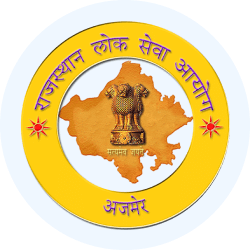1. Extraction Process for various Elements; Elements/Compounds and their Uses, Civil Services | RAS RPSC Prelims Preparation - Notes, Study Material & Tests - RPSC RAS (Rajasthan) PDF Download
| 1 Crore+ students have signed up on EduRev. Have you? Download the App |
Extraction Process for various Elements
|
1. |
Frasch Process |
Sulphur |
|
2. |
Acheson process |
Graphite |
|
3. |
Hall Herault |
Aluminium |
|
4. |
Ostwald process |
Nitric acid |
|
5. |
Bayer process |
Extraction of Aluminium from ore |
|
6. |
Bessemer process |
Steel from molten pig iron |
|
7. |
Patio process |
Silver |
|
8. |
Dow process |
Bromine |
|
9. |
Pidgeion process |
Magnesium |
|
10. |
Fischer Tropsch process |
Gasoline |
|
11. |
Azeotropic distillation |
Absolute alcohol |
|
|
|
Elements/Compounds & Their Uses |
|
1. |
Xenon |
High speed photographic tubes. Electric valves & t.v. tubes |
|
2. |
Krypton |
Incandescent bulb. Airfield lights because of characteristic red colour. |
|
3. |
Lithium |
Deoxidizer and to remove unwanted gases during the manufacture of metals. |
|
4. |
Beryllium |
X-ray (transparent) window. Moderator in nuclear reactions around the core. |
|
5. |
Neon |
Neon lights. Cryogenics |
|
6. |
Hopsalite |
Mixture of oxides of manganese, cobalt, copper & silver – Anti pollution |
|
7. |
Ammonia |
Refrigerant, fertilizers |
|
8. |
Yttrium |
Used in TVs to produce red colour |
|
9. |
Bismuth |
Joined with iron to make it malleable |
|
10. |
Sodium |
Street lamp |
|
11. |
Gadolinium |
CDs. Aluminium is sometimes used to coat the disc. |
|
12. |
Cesium |
Atomic clocks |
|
13. |
Tellurium |
Tint glass (one way visibility used in cars). |
|
14. |
Technetium |
Superconductor at -262 degree Celsius. |
|
15. |
Paraformaldehyde |
Common disinfectant & contraceptives |
|
16. |
Potassium Dichromate |
Used in breath analyzer for detecting alcohol. Safe limit is < .1 %. |
FAQs on 1. Extraction Process for various Elements; Elements/Compounds and their Uses, Civil Services - RAS RPSC Prelims Preparation - Notes, Study Material & Tests - RPSC RAS (Rajasthan)
| 1. What is the extraction process for various elements? |  |
| 2. What are some commonly extracted elements and compounds, and what are their uses? |  |
| 3. How does the extraction process differ for metallic and non-metallic elements? |  |
| 4. What are the challenges faced in the extraction process for certain elements? |  |
| 5. How does the extraction of elements contribute to various industries and everyday life? |  |
|
109 docs|21 tests
|

|
Explore Courses for RPSC RAS (Rajasthan) exam
|

|


















